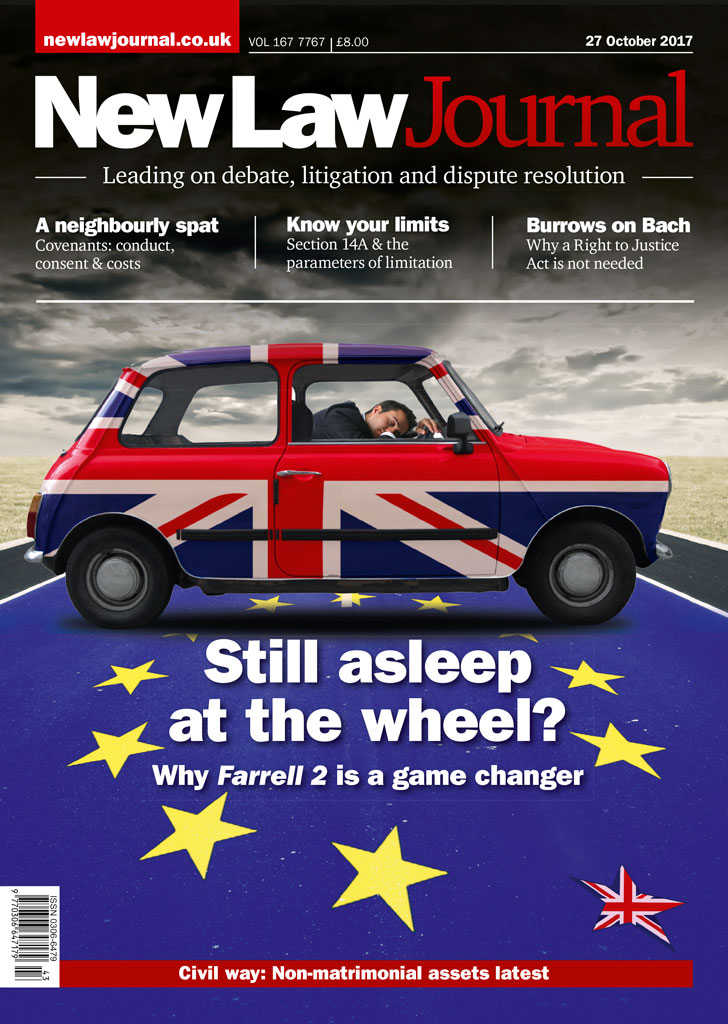
The European Court of Justice ruling in Farrell v Whitty (C-413/15), this month, fixes the Motor Insurance Bureau (MIB) with a completely new liability to compensate motor accident victims aff ected by the government’s longstanding failure to implement the European Motor Insurance Directives (the Directives) properly, according to insurance expert Dr Nicholas Bevan.
Bevan, a solicitor, said: ‘In Farrell the court ruled that the Irish compensating body, MIB of Ireland, was subject to the direct eff ect of the Directives. This means that it is now liable to compensate victims of vehicles that are uninsured in circumstances wrongly excluded from compulsory insurance in Ireland. The MIB was set up in almost identical circumstances.
‘Hitherto it was settled law that the MIB was not an emanation of the state and thus not vicariously liable for the government’s legislative shortcomings in this way.’
Bevan continued: ‘Farrell is the most important ruling on state liability for over a quarter century. Its impact extends beyond the Motor Insurance Directives it addresses. Its effect is to extend the range of organisations that are capable of being pinned with a direct liability to compensate individuals adversely aff ected by a state’s failure to implement a Directive. It equips claimants with a new right of action grounded in EU law.’ (State liability: betwixt & between Brexit)










